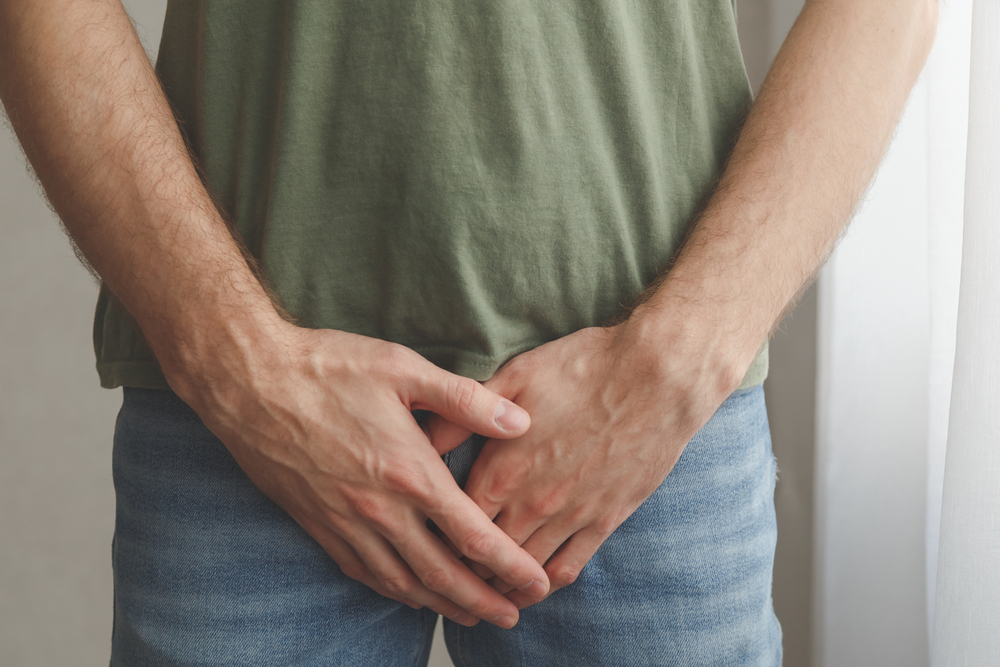In Pakistan, where sexual misconceptions often loom over conversations, we need to shed light on a subject clouded in taboos now more than ever: myths about men’s sexual health.
These prevailing misconceptions hinder open discussions. Moreover, they have significant implications on men’s overall well-being and relationships.
Healthwire aims of debunking myths about men’s sexual health to empower people with accurate information. It will foster a healthier attitude towards sexuality and make way for improved physical and emotional intimacy.
It is time to break free from ignorance and misinformation, so let’s get into busting myths about men’s sexual health.
Table of Contents
Myth 1: Size Matters
One of the most pervasive myths about men’s sexual health is the belief that penis size is the be-all and end-all of sexual performance and satisfaction. Countless studies have shown that this notion is far from the truth.
While there’s no denying that physical attraction plays a role in sexual relationships, sexual pleasure is more about technique, communication, and emotional connection.
Fun fact: According to a study published in Science Daily, 85% of women were satisfied with their partner’s penis size, but 55% of men weren’t with their size and performance.
So, guys! It’s all in your head. Stop worrying about the size!
Myth 2: Erectile Dysfunction (ED) Only Affects Older Men
Erectile Dysfunction is often wrongly associated with aging, leaving many young men unaware that it can impact them too.
The reality is that ED can affect men of all ages due to various factors such as stress, anxiety, and lifestyle habits.
Research reveals that over 20% of men under 40 experience erectile dysfunction. Thus, this debunks the misconception that it’s solely an issue for older gentlemen.
Doctor Recommendation: Dr. Zubair Ahmad Cheema is a qualified Andrologist/Sexologist in Lahore. With experience spanning over 20 years, he can successfully treat all kinds of men’s sexual health problems.
Myth 3: Masturbation Causes Sexual Problems
Ah, the age-old myth that excessive self-pleasure leads to sexual problems. Fortunately, this is far from the truth!
Masturbation is a natural and healthy aspect of human sexuality. It does not cause erectile dysfunction or other sexual issues. It can have positive effects, like reducing stress and improving mood.
According to a study, regular masturbation can even benefit prostate health in older men.
On a side note: Overdoing anything has consequences. Therefore, you can learn here the side effects of overdoing masturbation.
Myth 4: Real Men Should Always Be Ready for Sex
Society often places immense pressure on men to perform at any given moment. However, it can lead to unnecessary stress and anxiety.
However, it’s crucial to understand that fluctuations in sexual desire are entirely normal. Various factors, such as stress and fatigue, can influence a man’s readiness for intimacy.
According to research, men’s sexual desire tends to decrease with age, and that’s perfectly normal too. It may happen because testosterone levels tend to decline after age 35.
Myth 5: Men Don’t Experience Sexual Anxiety
Men are often assumed to be perpetually confident and in control of their sexuality.
The truth is that sexual anxiety can affect anyone, regardless of gender. We should address this myth and emphasize the significance of seeking support and open communication with partners.
A study reveals that sexual anxiety is a common concern among men and can impact sexual satisfaction.
Myth 6: Testosterone Boosters Improve Sexual Performance
There’s a widespread belief that over-the-counter testosterone supplements can work wonders for sexual performance.
However, research suggests that while testosterone replacement therapy may help men with clinically low testosterone levels, it’s unlikely to have substantial benefits for those with normal levels.
Myth 7: No Symptoms, No STIs
This misconception can be dangerous!
Many sexually transmitted infections (STIs) don’t always present noticeable symptoms, leaving individuals unaware of their infection.
Regular STI testing, even in the absence of symptoms, is crucial for maintaining sexual health and preventing the spread of infections.
According to the Centers for Disease Control and Prevention (CDC), nearly half of all new STI cases occur in people aged 15 to 24.
Myth 8: Men Should Be Naturally Skilled in Bed
Society often places unrealistic expectations on men to be naturally skilled in bed.
However, sexual prowess is not an inherent trait but rather a skill that can be developed through open communication and learning about one’s partner’s desires and preferences.
Common Questions About Men’s Sexual Health
Now, let’s address some common questions that arise when discussing men’s sexual health:
Can lifestyle choices affect sexual performance?
Absolutely! Lifestyle choices, such as smoking, excessive alcohol consumption, and a sedentary lifestyle, can have a significant impact on sexual performance.
Adopting a healthy lifestyle, including regular exercise and a balanced diet, can positively influence sexual well-being.
Is there an “average” duration for sexual intercourse?
No magic number defines the “ideal” duration for sexual intercourse. It varies widely among individuals and depends on various factors like age, physical condition, and relationship dynamics.
Communication and understanding between partners are key to satisfying experiences.
Can medications or health conditions impact sexual health?
Certain medications and health conditions can indeed affect sexual health.
For example, antidepressants may lead to decreased libido, and diabetes can cause erectile dysfunction. Seeking professional advice and discussing concerns with a healthcare provider is essential.
What role does emotional intimacy play in sexual satisfaction?
Emotional intimacy is a vital aspect of sexual satisfaction. Feeling emotionally connected and secure with a partner can significantly enhance the overall sexual experience.
Have You Successfully Debunked Myths About Men’s Sexual Health?
Remember, education is the key to breaking free from societal taboos and misconceptions.
Embrace open conversations, seek professional help when needed, and remember that sexual well-being is an essential aspect of overall health and happiness. You can consult a qualified sexologist via Healthwire’s platform.
Here’s to a fulfilling and holistic approach to men’s sexual health!
